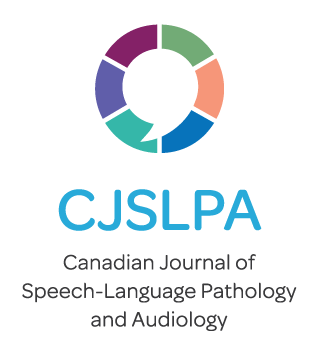

| Author(s) |
Ellen Bouchard Ryan, PhD |
| Volume | 20 |
| Number | 2 |
| Year | 1996 |
| Page(s) | 95-100 |
| Language | English |
| Category | |
| Keywords |
predicament aging communication |
| Abstract |
This overview article provides psychosocial perspectives for understanding individual differences among older adults in communication skills, especially the discourse and hearing problems highlighted in the two special issues on Discourse and Aging (this issue), and Hearing and Aging (in press). Older adults often experience the Communication Predicament of aging (Ryan, Giles, Bartolucci, & Henwood, 1986), within which their opportunities to exhibit discourse and hearing competence are limited by their communication environments. Within a health promotion framework, communication enhancement strategies can work most effectively when care providers are enabled to empower their older clients to learn and use more productive communication skills. Clinical communication experts then become essential, not only for individual assessment and treatment, but also for expanding roles in staff, family, and volunteer education and training, and in negotiating more communicatively healthy environments. Cet article offre un point de vue psychosocial qui nous permet de mieux saisir les variations des aptitudes à la communication chez les personnes âgées, plus précisément les problèmes de discours et d'audition mis en relief dans les deux numéros spéciaux rattachant ces aspects au vieillissement. Les aînés éprouvent souvent de la difficulté à communiquer lorsqu'ils vieillissent (Ryan, Giles, Bartolucci, & Henwood, 1986), leur aptitude à démontrer leurs compétences au niveau du discours et de l'audition étant limitée par le milieu dans lequel s'effectue la communication. Dans le contexte d'un programme de promotion de la santé, les stratégies visant à faciliter la communication donneront les meilleurs résultats quand ceux qui dispensent les soins sont en mesure d'aider leurs clients âgés à apprendre et à utiliser des moyens de communication plus efficaces. Les spécialistes de la communication clinique deviennent alors essentiels, non seulement pour l'évaluation et le traitement personnalisé, mais aussi pour l'élargissement des rôles au niveau de l'éducation et de la formation des employés, des parents et des bénévoles, et pour la négociation de conditions plus propices à la communication. |
| Record ID | 187 |
| Link | https://cjslpa.ca/files/1996_JSLPA_Vol_20/No_02_85-168/Ryan_JSLPA_1996.pdf |
CJSLPA is an open access journal which means that all articles are available on the Internet to all users immediately upon publication. Users are allowed to read, download, copy, distribute, print, search, or link to the full texts of the articles, or use them for any other lawful purpose.
CJSLPA does not charge authors publication or processing fees.
Copyright of the Canadian Journal of Speech-Language Pathology and Audiology is held by Speech-Language and Audiology Canada (SAC). Appropriate credit must be given (SAC, publication name, article title, volume number, issue number and page number[s]) but not in any way that suggests SAC endorses you or your use of the work. You may not use this work for commercial purposes. You may not alter, transform, or build upon this work.